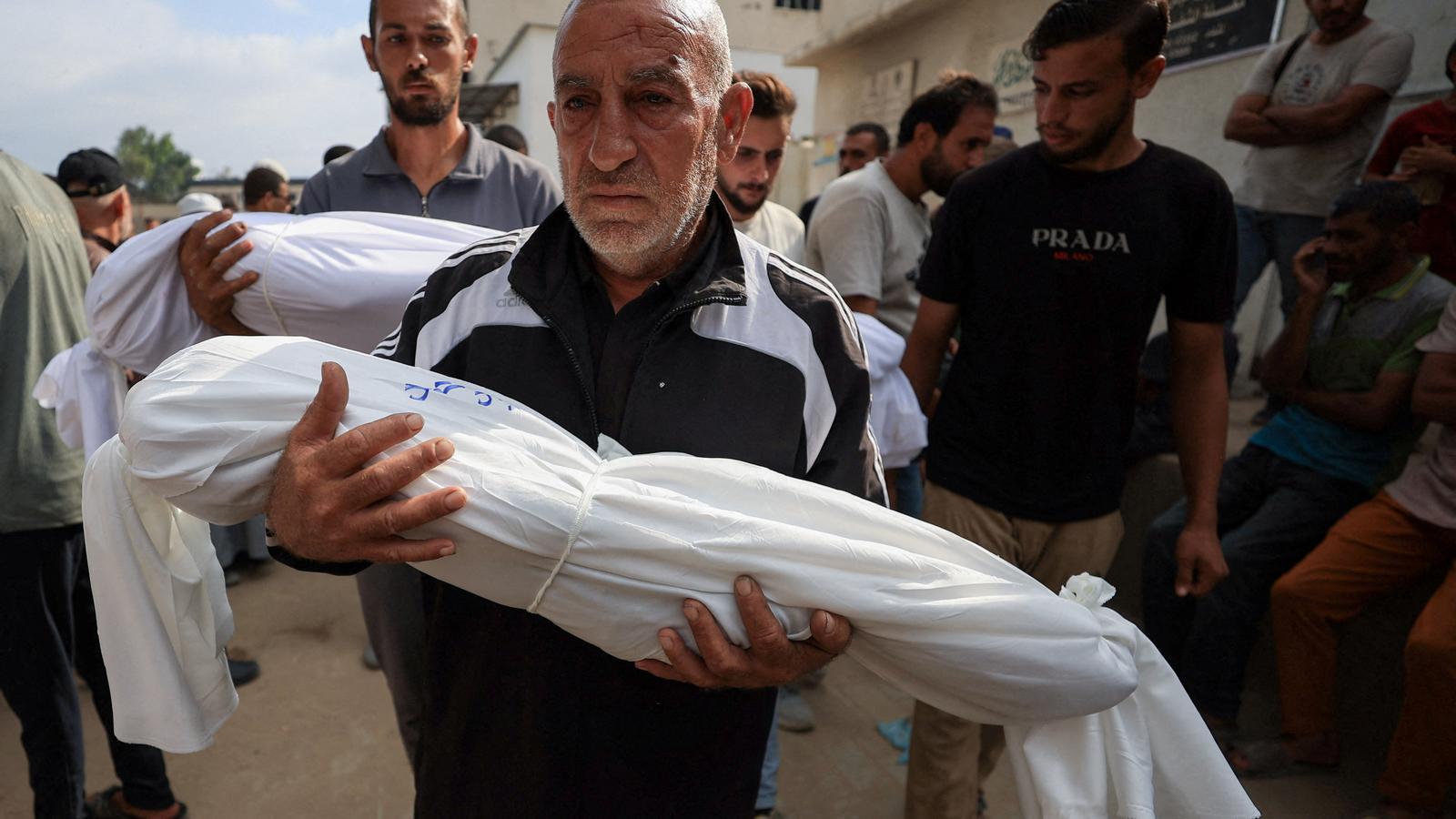

A general consensus is emerging that genocide is being committed in Gaza. Okay. And a month ago, what was it? Because we've been denouncing the atrocities and excesses committed by Israel in this conflict for months. What happens when the classification of the thing is elevated to a new terminology? Well, the effect is twofold: on the one hand, it automatically garners more sympathy from international public opinion (the famous battle of the story), and, on the other, it enters a different legal classification that has aggravated penal effects. If Russia were committing genocide in Ukraine, the demonstrations against Putin would undoubtedly have rekindled throughout Europe (instead of this shameful paralysis). At first, Hitler also limited himself to invasions, when the Holocaust was not yet known (or reported): you start by invading territories, or in other words, not respecting the rights of peoples, and you end up not respecting life. Genocide is a change of screen. A change of size. What's more, if you say it is, you automatically seem pro-Palestinian; if you say it isn't, you're pro-Zionist. Labels label us.
We already learned it here: when you say "tumult", it means sedition. When Aznar speaks of "kale borroka"In reference to the demonstrations during the Vuelta a España, he's referring to terrorism. When you call it a "coup d'état," you mean the crime of treason. And when you call it "Spanish democracy," you mean compliance with the unilateral interpretation of the law. There was a time when the Council of Europe even did so in Catalan, indirectly, as if it weren't looking at anyone (but mentioning Spain and Türkiye).Long live the Spanish people!"instead of proclaiming its equivalent, synonymous and authentic"Long live Spain!".
Language doesn't just describe reality: it creates it. When the UN takes months to use the word genocideWhat it's doing is postponing reality itself. When the International Court of Human Rights doesn't dare to enter into this definition, it also sets the limits of truth. When a state doesn't call it a "war" but rather a "special operation," it's turning destruction into a surgical and almost legitimate mission. Words are the frameworks within which we place facts, and if you change the framework, you change the meaning of what it contains. Franco's regime spoke of a "National Movement" and not a dictatorship, just as Aznar began to speak of a Basque National Liberation Movement when negotiating with ETA. The military speaks of "collateral damage" to avoid having to say "civilian deaths," and Trump has switched from referring to the Ministry of Defense to the Ministry of War. In this case, incidentally, the new terminology is clearly more honest.
The same goes for adjectives: saying "extremist" is not the same as saying "far-right," nor "independence supporter" as saying "separatist." In Spain, for years, the latter word was imposed to give a negative connotation to the sovereignty movement, apart from the ineffable "supremacists," "racists," and "unsupportive." Even today, depending on who is speaking, there are not "political prisoners" but "imprisoned politicians": an order that is not innocent, because the subject determines whether the action is political or criminal. In fact, most political battles today are fought in the field of language: whoever manages to impose their word, imposes their narrative, and whoever imposes the narrative, conditions reality. Orwell said it with the "Newspeak" language of his1984:if you remove the word freedom, you eliminate the idea of freedom.
That's why it's so dangerous when debates are reduced to words. The discussion about whether genocide is taking place in Gaza is necessary, but if all political and moral energy is exhausted, we end up forgetting that what exists is a subjugated people, a massacred population, and a denied right to self-determination. It's the same trap as here: the day we discuss only whether there was "sedition" or "aggravated public disorder," we've already lost, because we accept that the debate isn't about freedom, but about criminalization.
Words define, but they also stigmatize. They say things, but they also do them. They can describe reality, but they can also create it. So they come and tell us that writers, those of letters, those of adjectives, don't decide anything.
